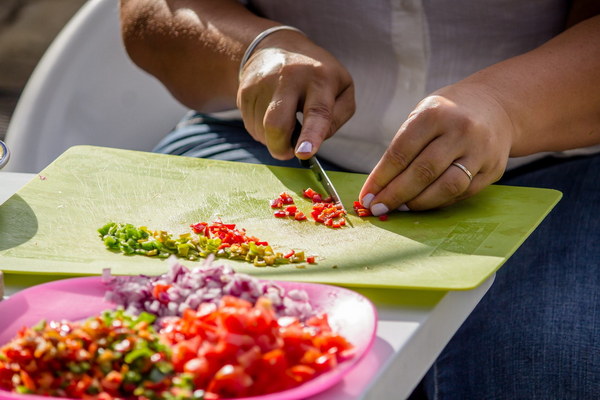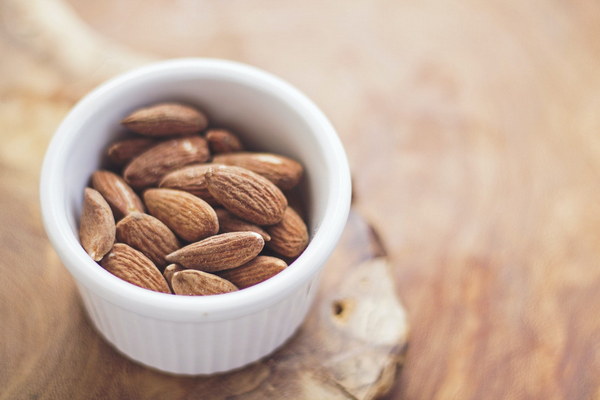Reviving Vitality Post-Surgery Pig's Foot Soup for Boosting Qi and Blood
In the realm of traditional Chinese medicine, post-surgery recovery is a delicate process that requires a comprehensive approach to restore the body's balance. One such remedy that has been cherished for centuries is the post-surgery pig's foot soup, a nourishing elixir designed to replenish Qi and Blood after surgery. This article delves into the benefits of this ancient recipe, its ingredients, preparation method, and the science behind it.
The Significance of Post-Surgery Pig's Foot Soup
After surgery, the body undergoes a significant amount of stress, leading to the depletion of vital energy (Qi) and blood (Xue). The post-surgery pig's foot soup is believed to help replenish these essential elements, promoting a quicker and more comfortable recovery. This traditional remedy is particularly popular among Chinese patients, with many healthcare professionals recommending it as part of the post-operative recovery process.
Ingredients
The key ingredients in the post-surgery pig's foot soup are pig's feet and various herbs that are believed to boost Qi and Blood. Here's a list of the primary components:
1. Pig's feet: Known for their rich gelatin content, pig's feet help to strengthen the bones, tendons, and ligaments. The gelatin also aids in the production of synovial fluid, which lubricates the joints.
2. Astragalus (Huang Qi): This herb is renowned for its immune-boosting properties and its ability to enhance Qi.
3. Codonopsis (Dang Shen): A natural adaptogen, Codonopsis is believed to boost the immune system, enhance physical endurance, and improve overall vitality.
4. Goji berries (Gou Qi Zi): These berries are packed with antioxidants, vitamins, and minerals that help to support the immune system and boost blood circulation.
5. Dates (Shi Zao): Dates are a natural sweetener that also possess a variety of nutrients, including fiber, vitamins, and minerals. They help to replenish the body's energy and improve digestion.
6. Ginger (Sheng Jiang): Ginger is known for its ability to aid digestion, reduce inflammation, and improve blood circulation.
Preparation Method
To prepare the post-surgery pig's foot soup, follow these steps:
1. Clean and prepare the pig's feet by removing any hair and dirt. Boil the pig's feet in water with a little vinegar to help remove impurities.
2. Soak the Astragalus, Codonopsis, and Goji berries in water for at least 30 minutes.
3. In a large pot, combine the pig's feet, herbs, dates, and ginger. Cover the pot with water and bring to a boil.
4. Reduce the heat and let the soup simmer for at least 1-2 hours, or until the pig's feet are tender and the flavors have melded together.
5. Strain the soup and serve it warm, with or without additional seasonings to taste.

The Science Behind Post-Surgery Pig's Foot Soup
While the traditional Chinese medicine approach to post-surgery pig's foot soup is rooted in ancient wisdom, there is also scientific evidence to support its benefits. Some of the key benefits of the ingredients in this soup include:
1. Gelatin: As mentioned earlier, gelatin helps to promote joint health and improve the body's ability to produce synovial fluid.
2. Astragalus: This herb has been shown to enhance immune function and promote overall health.
3. Codonopsis: Research has indicated that Codonopsis can improve physical endurance, boost the immune system, and enhance energy levels.
4. Goji berries: These berries are rich in antioxidants, which help to protect the body from oxidative stress and support overall health.
5. Ginger: Ginger has been found to have anti-inflammatory properties, which can help to reduce pain and improve recovery after surgery.
In conclusion, the post-surgery pig's foot soup is a nourishing elixir that has been cherished for centuries. Its combination of ingredients, including pig's feet, Astragalus, Codonopsis, Goji berries, dates, and ginger, work together to replenish Qi and Blood, support the immune system, and promote a quicker recovery after surgery. While more research is needed to fully understand the benefits of this traditional remedy, the evidence suggests that it is a valuable addition to the post-operative recovery process.









